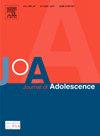Longitudinal relationship between adolescent emotional self-regulation and prosocial behavior toward powerful people: Disentangling between-person differences from within-person effects
Abstract
Introduction
This study investigated the longitudinal effects between adolescent emotional self-regulation and prosocial behavior toward powerful people (i.e., actions aimed at benefiting or supporting individuals who hold significant influence or authority within a group or society), based on the perspective of positive socialization cycle.
Methods
We recruited 543 Chinese adolescents (284 girls, M age at Time 1 = 11.27 years) and collected three waves of data over 3 years, each approximately 1 year apart (n Time 2 = 449, n Time 3 = 417). Traditional cross-lagged panel model was conducted to test the longitudinal relationship between emotional self-regulation and prosocial behavior toward powerful people. Then, a random-intercept cross-lagged panel model was performed to disentangle the between-person differences from the within-person predictive processes.
Results
The results showed that, emotional self-regulation in the previous year was positively associated with prosocial behavior toward powerful people in the next year, whereas earlier prosocial behavior toward powerful people was not predictive of subsequent emotional self-regulation.
Conclusions
Findings advocate the domain-specific nature of self-regulation and prosocial behavior and deepen our understanding of the relationship between the two from the culture-specific perspective. This study also highlights the value of emotional self-regulation intervention as a viable way to promote adolescent prosocial development. Theoretical and empirical implications are discussed.

 求助内容:
求助内容: 应助结果提醒方式:
应助结果提醒方式:


